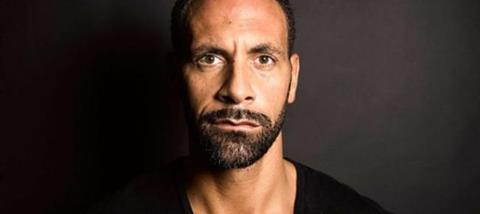
This week I watched a widower and father to three children explore his grief for what seemed like the first time.
As a counsellor this is not an unusual occurrence for me. Often it is in the safety and security of a counselling room that someone may do this for the first time. However for Rio Ferdinand, this was done on national TV in front of millions of people as part of a primetime BBC One documentary.
In May 2015 Rio lost his 34-year-old wife Rebecca to cancer. The cameras follow Rio one year on as he explores his grief and the grief of his children. The premise was: How can a single dad come to terms with his own internal battles alongside navigating how to effectively process their grief as a family?
Inviting the cameras in is not a conventional method for exploring your grief. Yet it was also a powerful way for him to show others that they are not alone. If nothing else I suspect the programme will help raise awareness that regardless of your gender, we all grieve. And we all grieve in our own unique way.
There was a tension in the shift of responsibilities that was taking place. From being someone who went to work, came home, sat on the sofa and knew that everything that happened in the house simply took care of itself, Rio was now having to learn how to do simple tasks, including using a washing machine for the first time. Whether or not you approve of the distribution of roles in Rio’s family is irrelevant. It worked for him and Rebecca and this shift was the practical change that had to take place for his family. Keeping a routine was paramount.
As you watched Rio process his conversations with young people and the professionals, especially those in Child Bereavement UK (CBUK), you could see how he fought with the tension of letting go of control of what his children were going through. He felt uncomfortable with the idea that his children needed someone outside the family to talk to. The truth is that often children try to protect their parents from their own grief and desperately try to stay strong.
Rio admitted he was trying to put all of his emotions "in a box, over there". This idea is completely normal as in the initial time following the death of a loved one you don't want to face the truth and reality of the situation.
But that part of his life couldn't stay in a box forever. He needed to find a place to have that conversation. A place where he could find a place to belong and be with like minded people. We saw a glimpse of this in his time with the "Gentlemen’s club" - a group of men who met up and could be open and vulnerable with each other, while also having a laugh and having a beer and burger together. Where they could joke about playing "bereavement Top Trumps" (who had the worst bereavement story). To laugh and cry and be themselves. A place where Rio could belong and not feel out of place.
As he met with these men, Rio had a shift of thinking. He was given permission to ask questions of what life may look like in the future. He could also ask questions of himself and the decisions he was making.
This permission was passed on to his children. Space was created to openly and honestly talk about mum. How normal and yet powerful it was to witness them as a family talk about their mum's favourite song. I perceived this to be a significant turning point: a releasing of the pressure valve as the question of "what will happen if we talk about this?" was answered.
Many feel that they need to find a place to belong with their grief, permission to explore it and a safe environment for it to take place in. This is where I believe that the Church can play a vital role in our communities. Those experiencing grief are often searching to have their feelings validated as it is often felt that what they're experiencing is abnormal.
I have seen churches open their doors to provide a variety of spaces. From an open space where people can sit away from the hustle of life, to providing people to listen and befriend, to partnering with local support services to offer specialist support groups or individual counselling, Churches can and should be used to give people the safe environment they need and to journey with someone without judgement or agenda.
If you find that you need support please don't suffer in silence. Visit careforthefamily.org.uk/family-life/bereavement-support and childbereavementuk.org/for-families
William Taylor is a counsellor and mentor working with children, young people and adults. He blogs at bigdaddywhale.com
Click here to request a free copy of Premier Christianity magazine





























